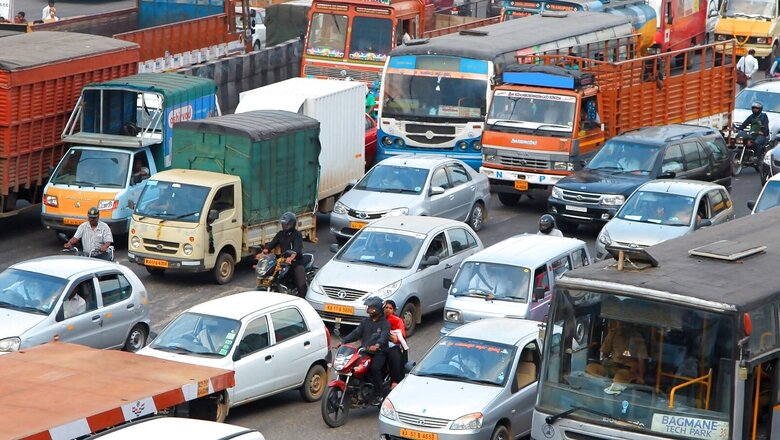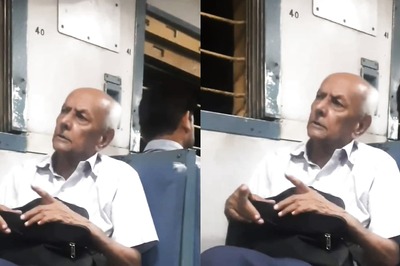
views
A new scrapping policy for government vehicles across India will be implemented next year as the union ministry of road transport and highways issued a draft notification to do away with all vehicles older than 15 years that the authorities owned.
The new policy will come into force on April 1, 2023, and will be for the motor vehicles owned by central and state/UT governments and their departments, local government institutions like municipal corporations, municipalities or panchayats, state transport undertakings, public sector undertakings, and autonomous bodies with the central and state governments.
Under the policy, “the certificate of registration shall not be renewed after the lapse of fifteen years … from the date of such certificate. Disposal of such vehicles shall also be ensured through Registered Vehicle Scrapping Facility set up in accordance with Motor Vehicles (Registration and Functions of Vehicle Scrapping Facility) Rules 2021,” the notification reads.
In simpler words, it means that government vehicles that are older than 15 years can no longer be used and should be scrapped. This also includes public buses and other such vehicles.
Objections and suggestions to these draft rules can be sent to Transport Bhawan, New Delhi or by email at ‘[email protected]’ by December 24, 2022.
“The objections or suggestions which may be received from any person in respect of the said draft rules before the expiry of the aforesaid period will be considered by the Central Government,” the order reads.
Speaking to News18, a ministry official said that the government wants to set an example. “We all have to take steps to fight air pollution. And this can be best done if the Centre takes the step. So, we have decided to scrap the government vehicles first,” the official said, demanding anonymity.
In March 2021, minister for road transport and highways Nitin Gadkari announced the vehicle scrapping policy in Lok Sabha. He said: “Older vehicles pollute the environment 10 to 12 times more than fit vehicles and pose a risk to road safety.”
He also said that the ministry is introducing the Voluntary Vehicle-Fleet Modernization Programme (VVMP) or “Vehicle Scrapping Policy” in the interest of a clean environment and rider and pedestrian safety. It is “aimed at creating an eco-system for phasing out unfit and polluting vehicles”.
It is important to note that the National Green Tribunal and the Supreme Court have earlier directed to scrap older vehicles, but that order was only for Delhi-NCR.
In 2014, the NGT said all diesel or petrol vehicles that are more than 15 years old will not be permitted to ply on the roads. It directed authorities to seize these vehicles, if found on the roads. It also barred the parking of such vehicles in any public area.
In 2018, the Supreme Court banned plying of diesel vehicles older than 10 years and petrol vehicles above 15 years in Delhi, adding that the vehicles violating the order will be impounded. These orders were issued to fight air pollution in the region.
Delhi is known to have bad air quality, particularly during winters. According to an analysis by the Centre for Science and Environment (CSE), among local pollution sources, vehicles caused half of Delhi’s own contribution to PM2.5 during Diwali week (October 21-26).
“When pollution concentration from all sources (local, NCR and beyond) are added, Delhi’s vehicles account for nearly 17 per cent of total PM2.5 concentration. High traffic load during Diwali week increased congestion for long hours — from 12 noon to 8 pm — flattening the congestion peaks,” the analysis by CSE reads.
Read all the Latest India News here




















Comments
0 comment